ECOWAS
As the Economic Community of West African States (ECOWAS) marks its 50th anniversary, the regional bloc finds itself at a historic crossroads. Founded on May 28, 1975, by 15 West African nations through the Lagos Treaty, was established to foster economic integration and enable the free movement of people and goods across borders.
Over the decades, it has stood as a symbol of regional cooperation, even serving as a model for other African blocs. However, its unity and relevance are under intense scrutiny.
The latest episode of Africanews Debates delved deep into ECOWAS’s legacy, current crisis, and uncertain future.
A Troubled Milestone
A stark reality overshadowed the golden jubilee celebrations: ECOWAS is facing one of its toughest periods since its inception. In the past year, three member states Mali, Burkina Faso, and Niger officially exited the bloc, forming the Alliance of Sahel States and cutting military ties with traditional Western allies like France and the U.S. In a dramatic pivot, they turned to Russia for military support, highlighting the region’s growing geopolitical shifts.
Despite these high-profile departures, ECOWAS leaders maintain that the bloc remains resilient.
Leadership Crisis and Economic Stagnation
Executive Director at Africa Centre for Security and Intelligence Studies, Emmanuel Kotin said one of ECOWAS’s deepest flaws is not structural but human, a crisis of leadership. He pointed out that the absence of “generational leaders” is capable of inspiring long-term development and regional cohesion.
Dr. Amaka Anku , Africa Director at Eurasia Group stressed on economic underperformance, arguing that West Africa remains trapped in a cycle of exporting raw commodities rather than value-added products. This not only limits job creation but also undermines economic transformation. Insecurity, social unrest, and widespread poverty are seen as downstream effects of this stagnation.
Eroding Trust in ECOWAS
Perhaps the most damning criticism came in the form of declining public trust. Once seen as a guarantor of rights and regional progress, ECOWAS is now viewed by many as an elitist club, dominated by heads of state with little accountability to citizens or regional parliaments.
Citizens, particularly young people and civil society actors, question the bloc's legitimacy. Panelists noted several contributing factors:
Short-termism among leaders focused on re-election.
Inconsistent enforcement of democratic norms and term limits.
Sanctions seen as punishing civilians rather than offending regimes.
A growing sense that ECOWAS defends the powerful while ignoring the people.
One of the panelisis Marie Josiane Ngah, the project Coordinator at WADEMOS commented that ECOWAS risks becoming "a diplomatic fossil disconnected from African realities."
The Nigeria Factor: Leadership or Hegemony?
Nigeria’s role, both past and present, was a focal point of the debate. With its massive population, oil wealth, and regional clout, Nigeria has long been the "engine" of ECOWAS. From peacekeeping efforts in Liberia and Sierra Leone to its decisive role in the 2017 removal of The Gambia's Yahya Jammeh, Nigeria has often defined the bloc’s direction.
However, today, Nigeria’s influence appears diminished. Domestic economic woes, political instability, and controversial foreign policy moves such as President Bola Tinubu’s threatened military intervention in Niger have eroded its credibility.
Smaller member states, meanwhile, have grown wary of Nigerian dominance, fueling internal friction and undermining regional consensus. Critics argue that without calibrated, inclusive leadership from Nigeria, ECOWAS cannot fulfil its promise.
Rebuilding Trust and Relevance
Despite the gloom, panellists also charted possible pathways to recovery:
Institutional reform that enforces consistent democratic standards.
More citizen engagement, particularly in communicating ECOWAS’s benefits (such as free trade and travel).
Investments in development, especially infrastructure and industry.
A recalibrated Nigeria, acting less as a hegemon and more as a unifying force, supporting regional institutions and civil society.
One hopeful view emerged: that West Africa remains united in its struggles, if not yet in its governance. Shared challenges poverty, insecurity, and youth unemployment, could serve as a foundation for collective action, if political will aligns.
Citizen Voices: Cynicism and Frustration
Viewer reactions to the debate highlighted a deep reservoir of cynicism. Some called ECOWAS a “useless organisation” beholden to Western interests. Others urged its complete dismantling, seeing it as a “puppet club” for corrupt leaders. Many expressed scepticism about the idea of African unity itself, citing deep-seated divisions and widespread corruption.
Nonetheless, there were also voices calling for renewed leadership, one that prioritises the continent’s sovereignty, addresses economic inequality, and replaces “colonial-era structures” with institutions truly rooted in African values.
Conclusion: A Region at a Turning Point
As ECOWAS enters its sixth decade, the stakes have never been higher. Once hailed as a beacon of African integration, it now stands at risk of irrelevance unless it can rebuild citizen trust, restore institutional integrity, and redefine its purpose for a changing continent.




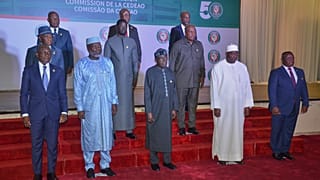
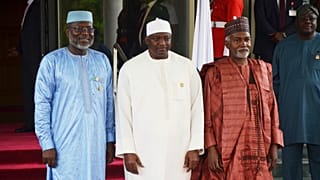
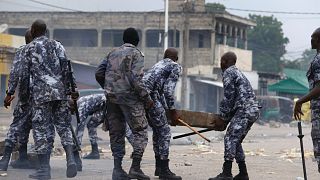



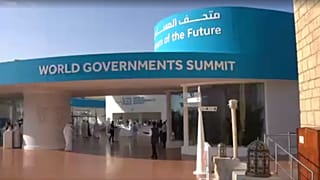
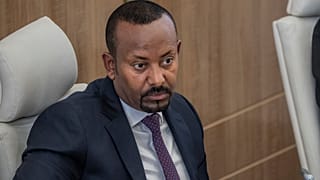
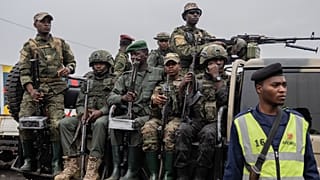
01:13
Guinea-Bissau: opposition leaders refuse offer to join government
Go to video
Deadly extremist attacks kill dozens in north-eastern Nigeria
01:04
Niger's leader says France, Benin, Ivory Coast behind airport attack
01:47
African creators push for recognition of digital work as full-time careers
01:04
Nigerian Afrobeat legend Fela Kuti becomes first African to receive Lifetime Grammy
02:19
Anthony Joshua pays tribute to friends killed in Nigeria car crash